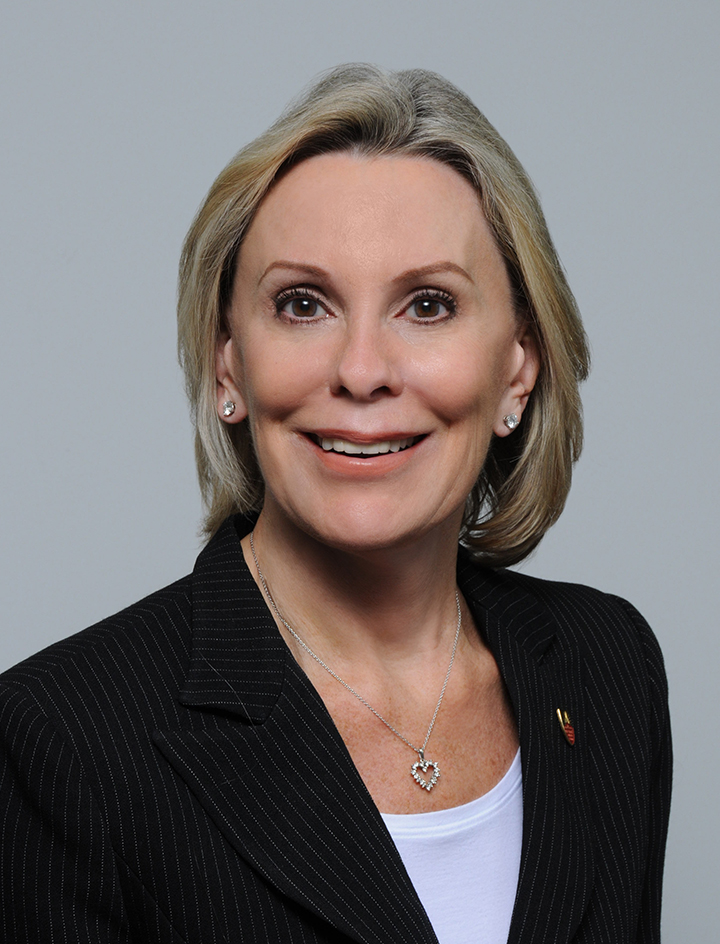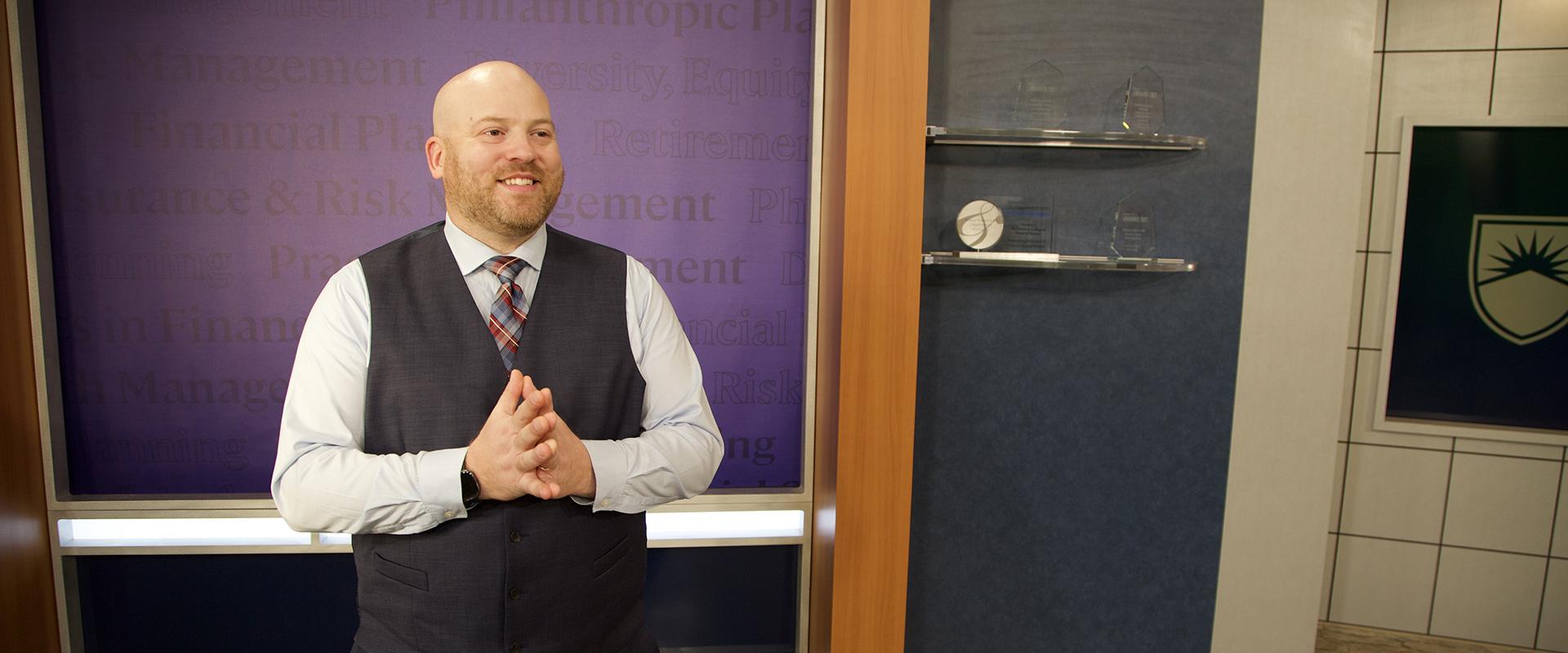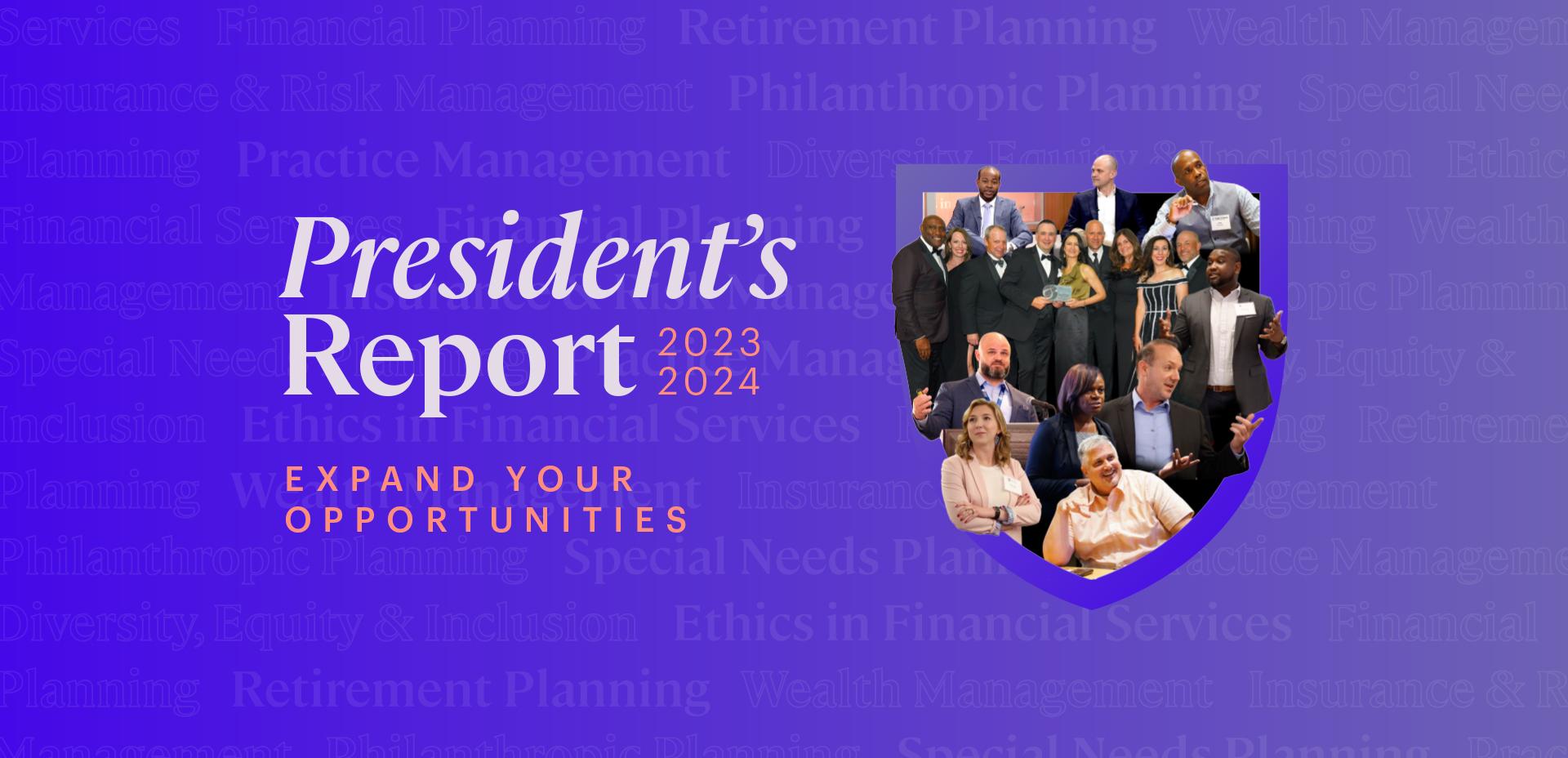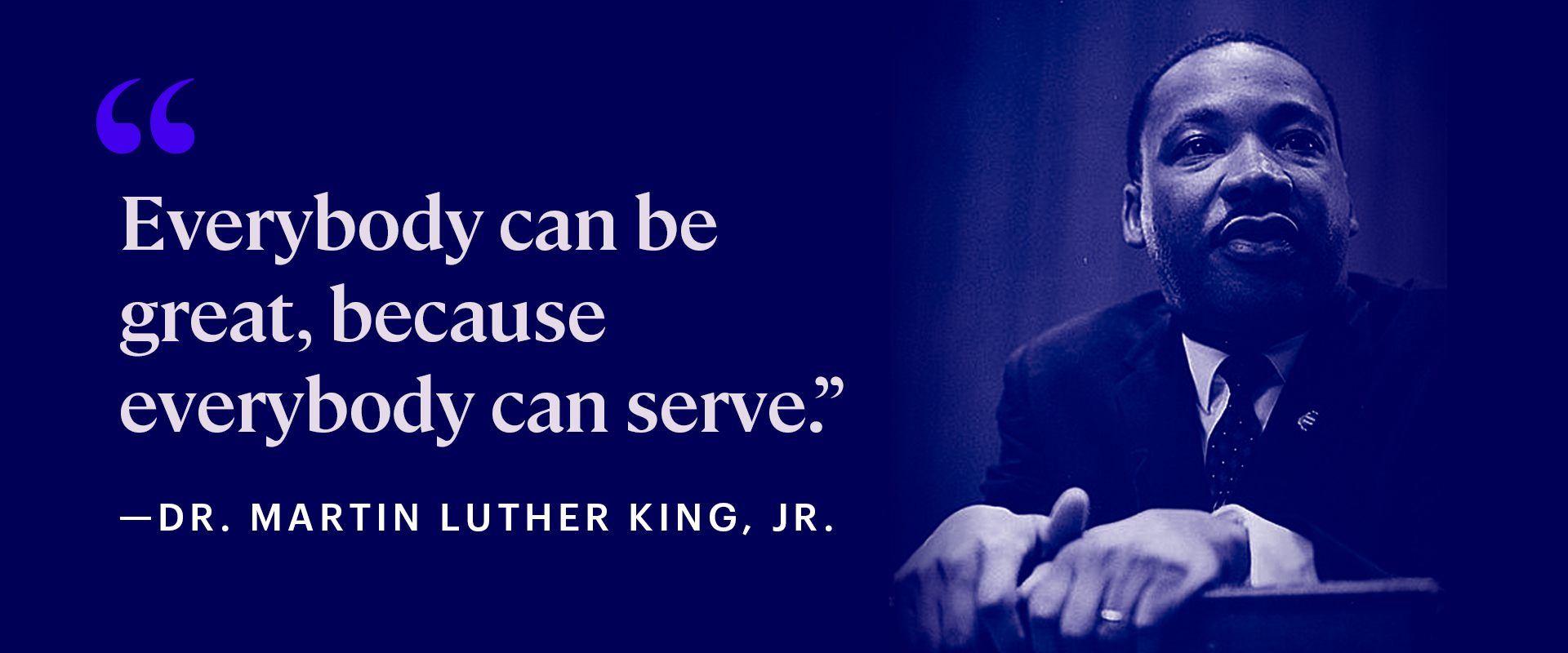About The College From The President Insights
Remembering Jayne N. Schiff

Jayne was a lifelong learner who seemed to have boundless energy when it came to anything in her life, including anything related to The College. The Master of Science in Financial Planning and six designations she earned from The College (in addition to her two bachelor’s degrees and another master’s) were just a few of the many ways she stood out among her contemporaries. Jayne loved The College and was incredibly generous in giving of her time, talent, and treasure to support its growth and impact.
Jayne was a trailblazer. I knew her to be the first to speak up if she had an idea or concern — a woman who would raise her hand without hesitation when we needed her perspective or support. Equally as important, Jayne would raise her hand to ask questions. And even if the answer wasn’t what she wanted, she would listen for the reasoning and support the outcome. But the paradoxical truth is: as bold as she was in advocating for, and serving, The College and the financial services profession, she was modest in acknowledging the major role she played in both. An industry leader and a 2017 inductee into the Alumni Hall of Fame, which recognizes graduates of The College who have made extraordinary contributions to the financial services industry, Jayne didn’t seek out recognition as much as it sought her.
Jayne had a deep respect for the founder and first president of The College, Solomon S. Huebner, PhD; we bonded over a shared appreciation for his legacy and his vision for our great institution. Like Dr. Huebner, Jayne was a first by her own right: she was the first female president of the Alumni Association, now called the Alumni Council, and she was involved in many firsts at The College, including my own story. I credit Jayne and Bud for recruiting me to my role as president and CEO of The College. Were it not for their persistence, their passion, or their persuasiveness, I don’t know if I would have sought the office myself to become the first Black president of The College.
Jayne was the kind of person who could plant an idea or inspire a change in a way that seemed effortless. Just ask my daughters, who may still remember being timid around dogs as children — that is, until Jayne introduced the girls to her pooches. I can’t pinpoint the exact moment it became inevitable that we would welcome a dog into the Nichols family, but I can trace it back to the experience and the confidence my daughters gleaned from being with Jayne.
As a student, Jayne was diligent, meticulous, and conscientious. She was the same way as an agent and agency leader, wanting only the best for her clients; and she was the same way as an alumna, holding The College to the highest standards.
Jayne was a singular woman and a force of change as an individual. Partnered with Bud, her husband of 53 years (together for 57 years) who is an Alumni Hall of Famer himself, she was unstoppable. As a team, they turned aspirations into impact for The College, and I daresay, for every organization and cause they championed. Personal passions and empathy inspired Jayne’s endeavors. As one example, Jayne was an educator, advocate, and knowledgeable advisor to the special needs community, recognizing the specialized financial planning required to help families navigate their unique challenges. Indeed, she served on the Advisory Board of The American College Center for Special Needs. And there were many other philanthropic and professional causes that benefited from Jayne getting behind them and pushing forward for the greater good.
Yet no cause was more important to Jayne than her family. CJ and I would like to extend our condolences, thoughts, and prayers to Jayne’s beloved husband Bud, her son Matthew E. Schiff, CLU®, ChFC®, WMCP®, who served on the Alumni Board, including as its chair, daughter Kara A. Schiff, and the entire Schiff family. May her memory be a blessing.
I ask our College community, please join me in sharing your sympathies and remembrances on LinkedIn or however you feel appropriate.

From The President About The College Financial Planning Insights
Newest Professor of Practice Jeffrey Levine

Who is Jeff Levine?
Jeffrey Levine, CFP®, CPA/PFS, ChFC®, RICP®, CWS®, AIF®, BFA™, is the quintessential lifelong learner—an alumnus of The American College of Financial Services who holds several designations and professional credentials, and who has spent much of his career obtaining and sharing knowledge that can help fellow practitioners and clients alike.
He got his start in the profession by learning IRA and retirement planning from one of the best – and another professor of practice at The College – Ed Slott, CPA. Jeff went on to become chief retirement strategist at training firm Ed Slott and Company, LLC. (Incidentally, he’ll be a great addition to our epic retirement experience next year.)
As impressive as his academic acumen is, Jeff’s success as a practitioner also speaks for itself. He’s excelled in several leadership roles within financial services firms and is presently chief planning officer at Buckingham Wealth Partners.
Like Liam Neeson’s character in the blockbuster “Taken,” Jeff has “a very particular set of skills” – primary of which is the uncanny ability to translate the nuances of tax regulation into practical to-dos (and don’ts) for financial advisors. He has killer instincts when it comes to helping professionals understand this very complex topic.
Why tax planning?
Only two things in life are certain. And taxation is one of them. It’s no secret today’s clients are interested in tax-informed financial planning. Yet what has been taboo until now is offering it—or what’s more, specializing in it. I believe this stems from a misunderstanding and conflation of “tax planning” versus “tax advice” (the latter of which is left to CPAs). But make no mistake: Tax planning is an essential part of financial planning.
The College’s recently released 2024 Advisory Services Study revealed some interesting facts about this nuanced area: first, (whether they realize it or not) most advisors are offering some services we would define as tax planning; and second, that nearly all of them are missing opportunities by not offering other tax-planning services. For example, small business owner tax planning is clients’ most frequently requested service that investment advisor representatives (IARs) are not currently providing.
Why do unmet client needs matter so much more in today’s market than they did even five years ago? Because driving revenue is so much harder as services become more commoditized – and it’s past time to take a new approach. We believe applied knowledge will be the key to a breakthrough for future-thinking financial professionals who seek to specialize in an area some are uncomfortable addressing. One of the best ways advisors can grow business organically will be by offering additional services, in turn, increasing client satisfaction, client retention, and client lifetime value.
What makes this program different?
One of the things I love about The College is that we don’t do anything without first “studying up” on the subject. It’s not often we see such a clear need for specialized, applied knowledge – nor do we hasten to develop solutions that are not fully researched or thoughtfully built. The TPCP™ will be the first new designation program The College has offered in over seven years and the first since I joined.
Presiding over the research, development, and launch of the TPCP™ excites me not simply because it’s new to The College, but broadly speaking, because it’s new to the world of financial services. There is no other professional educational program that’s fully focused on tax-informed financial planning to support clients – including business owners – throughout their life. And at present, there’s no designation program that signifies a financial advisor is well-versed in tax planning, except in the relatively rare case (Jeff is one) of a practitioner who is credentialed as both a CPA and a CFP® professional. And even then, the CFP® only trains on income taxation, and the CPA is broadly a compliance credential for someone licensed to practice public accounting.
On one hand, the TPCP™ can help financial advisors build tax-smart strategies as a valued (and value-add) service to their clients who want more than investment management. On the other hand, it can help CPAs incorporate financial planning for their clients who want more than public accounting services. We believe this credential will be a big differentiator for the professionals who earn it, giving early adopters a first-mover advantage with the clients and prospects who have been expecting a broader spectrum of services.
I know the individuals who are drawn to the TPCP™, including thousands already on our waitlist, have this in common with Jeff Levine: they dare to be different. With his string of credentials, his sharp wardrobe of signature vests, and his unmatched ability to simplify complicated subject matter, Jeff has always been a standout professional. And I couldn’t be happier to congratulate him on becoming a professor of practice and welcome him to our team of outstanding academics as we usher in our newest program.
More From The College
- Join the waitlist for the Tax Planning Certified ProfessionalTM (TPCPTM) Program
- Meet Levine at the new, epic retirement planning conference: Horizons
- Learn more about Ed Slott and Company’s IRA Success
- Watch the Webinar on How to Integrate Tax Planning Into Your Practice
About The College Diversity, Equity & Inclusion From The President Podcasts
Expanding the Reach of Financial Services
In this special episode of our Shares podcast recorded at The College’s 2024 Conference of African American Financial Professionals (CAAFP), senior reporter for ThinkAdvisor John Manganaro speaks with President Nichols about his background at New York Life, his roles as the first Black president of The College and insurance commissioner for the state of Kentucky, and how his experiences working with diverse communities power his commitment to applied financial knowledge.
George Nichols III, CAP® currently serves as the 10th president and CEO in the storied history of The American College of Financial Services. Nichols joined The College after a 17-year stint at New York Life, where he held principal roles in sales, P&L, strategic initiatives, and public policy. In 2007, Nichols was named to the company's executive management committee. He also served as executive vice president in the Office of Governmental Affairs. Before joining New York Life, Nichols was the state of Kentucky's first Black insurance commissioner, leading regulation of the state's $10 billion insurance industry through his expertise in health insurance reform and financial services integration. He gained this knowledge through stints as the executive director of the Kentucky Health Policy Board, vice president of marketing for Athena of North America, executive director of product development with Blue Cross Blue Shield of Kentucky, CEO of Central State Hospital in Louisville, and executive assistant to the Commissioner of the Kentucky Department for Mental Health Services.
Nichols has been acclaimed for his efforts to drive transformative change in diversity, equity, and inclusion in the financial services profession and elsewhere. Savoy, a leading Black business and lifestyle magazine, named him among the "Most Influential Black Corporate Executives" twice: in 2012 and 2018; and among the “Most Influential Black Corporate Directors” in 2021. He was named to Forbes' inaugural 2021 edition of "The Culture 50 Champions." Nichols was also honored as one of "The Ten to Watch in 2021" by WealthManagement.com, and in 2022, he won a ThinkAdvisor LUMINARIES award for Executive Leadership, followed by InvestmentNews’ recognition in 2023 for the year’s See It, Be It role model. Additionally, Nichols is the inaugural recipient of the Alonzo Herndon Award by Business Insurance Magazine.
This episode is a collaboration with ThinkAdvisor.
Any views or opinions expressed in this podcast are the hosts’ and guests' own and do not necessarily represent those of The American College of Financial Services.
More From The College
About The College From The President Insights
National Military Appreciation Month

What is the meaning of Memorial Day?
Going back as far as I can remember, Memorial Day in my family has meant remembering the loved ones we have lost. Honoring the memories of beloved family members, including my infant sister who died at only six months of age. Bringing flowers to their graveside on an almost summer and almost always hot day. Celebrating the love of family by spending time together outside of work and school. That is the original, personal meaning I carry with me each Memorial Day.
Of course, as I grew older and gained more life experience, my worldview changed. Only then did I come to realize all the meanings of Memorial Day. Today, I think of the families preparing to bring flowers to the gravesides of their beloved soldiers, men and women who sacrificed their lives in service to our great country. I think of the young – and the young at heart – eager to wear red, white, and blue at local parades.
Today, I think of the families preparing to bring flowers to the gravesides of their beloved soldiers, men and women who sacrificed their lives in service to our great country.
Indeed, there is no one way to celebrate Memorial Day. I sincerely hope, however, that we all take a moment to appreciate those who have protected our freedoms, including the freedom to choose how we will spend the day.
Originally called Decoration Day when it was formalized in 1868, Memorial Day is the final of three designated days to honor the military community in May, following Armed Forces Day and Military Spouse Appreciation Day. In fact, May is National Military Appreciation Month.
What is the meaning of appreciation?
The word appreciation derives from the Latin word for price. I believe it is very important to appreciate that members of the military community are willing to pay the ultimate price for our country.
Perhaps another way to translate this word is to think of appreciation as the act of pausing to consider someone or something not in the literal sense of a price or sum, but rather, in the sense of intangible value. Freedom, sacrifice, leadership, determination, the resiliency of the human spirit – these are ideals we value, and ideals that the best of the military community represent for us.
Latin origins aside, to me appreciation means acknowledgment. National Military Appreciation Month gives citizens the opportunity to acknowledge the current, former, and departed men and women of the military community – including active-duty, guard, reservists, and veterans. If you’re not in this group, you likely know someone who is.
Freedom, sacrifice, leadership, determination, the resiliency of the human spirit – these are ideals we value, and ideals that the best of the military community represent for us.
What does the military mean to financial services?
There’s a strong connection between the military community and the financial services profession – and one we continue to strengthen.
Back in 2021, the U.S. Department of Veterans Affairs reported 200,000 service members transitioned to civilian life per year. As of late last year, that number has increased to 250,000 per year. I am hopeful many will join us by pursuing careers in financial services.
When veterans search for well-paying and fulfilling careers that emphasize service and leadership (careers to which they are well-suited), financial professional and financial advisor consistently appear in the top 10 of many lists (here’s an example). Likewise, in my experience, if I had to come up with a list of the greatest leaders in financial services, there’s no doubt military veterans would make it into that top 10.
As I like to say within our College community, and something that certainly holds true within the military-College community: We are stronger together!
When veterans search for well-paying and fulfilling careers that emphasize service and leadership (careers to which they are well-suited), financial professional and financial advisor consistently appear in the top 10 of many lists
How can you get involved?
I want to take this chance to appreciate and acknowledge the military community directly. Thank you for your service! And thank you for being part of The College – whether you’re a student, an alumna, alumnus, or designee, or just getting started.
Others, please join me in recognizing our colleagues who have military backgrounds, or who have family members who are serving or have served. If you can’t connect in person or by phone, you may share this message or acknowledge them on LinkedIn.
You’ll recall I opened this blog by suggesting you ask your friends about their traditions, and I hope you do. I’ll close by asking about yours: Would you please thoughtfully consider starting a new tradition of honoring those who have strengthened our nation – and our profession – by supporting College scholarships, events, or other efforts in the military community?
The American College Center for Military and Veterans Affairs and Center founding partner and sponsor Penn Mutual invite you to join the cause – to help members of the military community expand their opportunities.
Although we can’t put a price on their contributions, we can acknowledge how much we appreciate and value the military community.
2023-2024 President’s Report

As we roll out this year’s report, I’m also excited to introduce Carol Parlin Prushan, our new senior vice president of advancement and alumni relations. Under her leadership, we’re renewing our focus to expand The College’s impact on our communities.
The Rule of Threes
This year’s President’s Report is a great opportunity to learn more about the impactful initiatives tied to our three strategic focus areas.
1. Specialized Knowledge:
The Innovating for Impact article shows how The College is developing new programs on sought-after topics. This includes a sneak peek at how we’re building the #1 most-requested program you’ve been asking about—plus a way to get on our waitlist for it.
“Successful, continuous improvement is the cornerstone of a strong academic institution. And that will always require assessing existing programs for relevancy and quality, and then adapting as needed. The evolution of the financial services industry also necessitates the updates of existing, and development of new programs—a process that itself benefits from recent innovation.”
2. Representation:
The Purple Walls article examines how we support new and diverse talent in the financial profession broadly–and right here at The College. You’ll see powerful demographics and equally powerful programs, with testimonials about what’s working today.
Sneak peek: Ultimately, The American College of Financial Services is seeking to shape the financial services industry into a more representative sample of the Americans served by the industry. Through scholarships, events, programs, and thought leadership, we are undertaking a mission that will benefit not only the individuals and companies that make up the financial services industry, but current and prospective clients as well.
3. Retirement Planning:
The Reimagining Retirement Planning article features The College’s latest thought leadership on a topic of growing importance to your clients. Find out how we’re helping financial professionals reach consumers with robust applied retirement planning knowledge as the Baby Boomer retirement wave rises.
“In survey after survey over the past two years, our thought leaders have consistently found financial professionals, advisors, and even the general public want more retirement planning knowledge to prepare for the challenges and changing landscapes of markets, money, and regulations.”
(Read more about our strategic priorities.)
Measurable, Memorable, and Motivating
We’ve focused on what is measurable, letting the data tell the story wherever possible. And you’ll also find other moving and memorable stories, including a tribute to a dedicated alumnus – a professional whose life reflected a commitment to financial services and whose dedication to The College made a difference for generations to follow. We hope you’ll find all of the articles motivating as you think about your relationship with The College in the years to come.
And be sure to check out the listings of all our volunteers and look for yourself, your friends, and your colleagues among the photos from past events!
On behalf of our faculty and professional staff, I invite you to get your copy, share it with your network, and expand your opportunities.
Please enjoy the report—with our thanks for your support!
Women Working in Everything

Every day, I am inspired by the women in my life. I grew up with four sisters and no brothers. My mother was my first best friend. My wife of nearly 40 years is my forever best friend. Together, we raised our two daughters with the foundation and the faith to become strong, independent women (and raised our son to respect strong, independent women). In celebration of Women’s History Month, I believe all of us—men included—can honor the women in our lives and the women in American history by supporting the positive trajectory women are taking toward a better future. Or at a minimum, by not blocking it.
Allow me to explain. Before I became the first Black president and CEO of The American College of Financial Services, I was the first Black insurance commissioner in Kentucky, the first Black president of the National Association of Insurance Commissioners, and the first Black person elected to New York Life’s executive management committee. When I see a woman shatter a glass ceiling, I see familiar challenges and opportunities reflected in the glass.
When I see a woman shatter a glass ceiling, I see familiar challenges and opportunities reflected in the glass.
Although our stories and our breakthroughs differ, I know firsthand what it’s like to be the “first.” But as my family name would imply (I’m the “third”), and as anyone who has been a first may tell you, we also have a keen awareness of those who came before us. And we hold a special sense of hope for whoever will come next. The first is never the only.
So when I see a woman on the path to becoming a first, I feel the least I can do is move over and let her enter traffic at her own best pace—fueled by her God-given talents, her personal drive, and her applied knowledge. Nothing should stop her.
Now I have to ask: Who or what is stopping women from entering the financial services profession? According to the latest US Census Bureau data, women make up just over 50% of the population; yet less than a third (31%) of financial advisors are women. The fact that the profession is so disproportionate seems like something’s blocking the onramp. This is why The American College Center for Women in Financial Services exists: to promote gender parity in the profession through education, research, and networking. The Center facilitates a community known as Women Working in WealthSM, which is also the name of the Center’s newsletter.
This is why The American College Center for Women in Financial Services exists: to promote gender parity in the profession through education, research, and networking.
As a brother, son, best friend, husband, father, and professional, I support women working in all disciplines; but—as an empathetic “first”—I have a special place in my heart for the women who are working in arenas that may be considered “male-dominated.” Women Working in [Construction, Engineering, IT, and Wealth], I see you!
And someone we all see lately is the contemporary basketball great, Caitlin Clark of Iowa. On February 15, Clark surpassed the NCAA Division I women’s record set by Kelsey Plum in 2017. On February 28, Clark became the top-scoring women’s basketball player, breaking the unofficial record held by Lynette Woodard of Kansas since 1981. Clark’s accomplishment also shined a spotlight on the lesser-known women’s basketball player Pearl Moore, whose all-time record set in 1979 is still higher than Clark’s but not included for comparison because it occurred at Francis Marion College, which is not NCAA Division I. What a wonderful phenomenon when the excellence of one player shines a light on another!
This month, on March 3, Clark set the all-time NCAA Division I scoring record, breaking the record set by men’s basketball player Pete Maravich of LSU in 1970. In that moment, Clark marked a spot in basketball history—not only women’s basketball history. Clark’s greatness as a player is a story of human potential, both for women and men. What a great example of where women are headed in all arenas!
In the final moments of the postgame press conference that followed, a reporter asked:
“You have now scored more points than anyone who has ever played [NCAA] Division I men’s or women’s basketball. As much as you say that record isn’t what you’re thinking about, when you hear it like that, is that going to hit you at some point?”
Clark’s answer:
“Oh, for sure. It's really crazy to think about. Honestly, if you would have told me that before my college career started, I would have laughed in your face and been like, ‘No, you're insane.’
I've always been able to score the ball, but I don’t think people really understand how many amazing players have come before me and been able to score the ball and do it at such a high rate and do it for teams that are really, really good.
And just to be in the same realm of all these players that have been so successful, whether it's Pete [Maravich] or whether it's Kelsey Plum or Lynette Woodard—all these people have just given so much to the game.
Hopefully somebody comes after me and breaks my records and I can be there supporting them. And that's what makes the game of basketball so fun.
But yeah, it'll definitely hit me at some point. Thanks.”
I can’t think of a better way to close out this blog—or this Women’s History Month in March of 2024—than to reiterate Clark’s hope for the future: “Hopefully somebody comes after me and breaks my records and I can be there supporting them.”
Whether you are breaking glass ceilings or breaking records (assets under management, revenue, or hours of CE!); whether you are playing in one division or another (wealth management, retirement, life insurance, tax planning); whether you are new to the game or at the top of your game—The College and I support you on your path to make history.
The Elements of Greatness

King valued education. Indeed, he worked hard and studied for many years to become a highly educated man. After earning his Bachelor of Arts degree at Morehouse College, King went on to earn his Bachelor of Divinity at Crozer Theological Seminary, followed by his doctorate in systematic theology at Boston University.
To understand why King pursued education at the highest levels, look no further than his own writings. Toward the start of his academic journey while at Morehouse, King wrote, “Intelligence plus character—that is the goal of true education.” (I encourage you to read King’s full article here.) Considering his perspective on education, not to mention his chosen discipline (theology), one might infer King’s experience in higher ed influenced his development as a leader, in addition to growing his knowledge base.
Like King, I have always been a believer in education. Like King, I see education as but one way to fulfill a higher calling. Many years after setting out on his journey through higher education, King would go on to say that education was not requisite for greatness. In a sermon delivered just two months before his assassination, King preached:
“If you want to be great—wonderful. But recognize that he who is greatest among you shall be your servant. That's a new definition of greatness. [And] the thing that I like about it: by giving that definition of greatness, it means that everybody can be great, because everybody can serve. You don't have to have a college degree to serve. You don't have to make your subject and verb agree to serve…You only need a heart full of grace. A soul generated by love. And you can be that servant.”
—Dr. Martin Luther King Jr.
“The Drum Major Instinct,” February 4, 1968, an adaptation of the 1952 homily by J. Wallace Hamilton (full sermon here)
As educators, as students, and as proponents of lifelong learning within our domain of applied financial knowledge, what might we make of King’s stance on education? Here’s what I believe it means: Although King loved learning, he loved service even more—and the lesson is to apply education in service to others. Formal education (whether a college degree or a College designation) itself is not the key to greatness. Instead, it helps build knowledge, intelligence, and character, which, together, equip us to lead lives of service. Only then can our impact be truly great.
This holiday, let’s align our educational goals to our life goals. Let’s pursue education that builds knowledge, intelligence, and character. And let’s apply what we learn in service to others—with faith, as MLK possessed, that our lives may serve a greater purpose.
Can The Wealth Management Industry Change Its Model To Reach a Diverse Client Base?
Where RIAs Go From Here: American College CEO
Juneteenth and Reclaiming Black Wealth

Juneteenth is a time to celebrate our progress in advancing racial equity and harmony while also being mindful of the work that still needs to be done to eradicate systemic inequities in America.
Here, at The American College of Financial Services, we recognize the impact of economic inequality on communities and are working to narrow the wealth gap by championing diversity in financial services. This August, we will host the 17th annual Conference of African American Financial Professionals (CAAFP), with this year's theme being "Reclaiming Black Wealth." With the passing of the 13th amendment in 1865, African Americans achieved political freedom. Yet, financial freedom remains unobtainable for many Black families leaving nearly 3.5 million Black households with negative net worth and 4.3 million more with a net worth under $10,000.1
The racial wealth gap in America has not continuously widened. In the decades immediately following the end of slavery, the wealth gap was diminishing rapidly.2 In the early 20th century, Black communities were thriving across the country, including the Greenwood District of Tulsa, Oklahoma, Harlem, New York, the "Sweet Auburn" District of Atlanta, and the neighborhood of Christian Street and Black Doctors Row in Philadelphia, which was home to the largest percentage of Black professionals in Pennsylvania.3 However, since the 1980s, the racial wealth gap in America has continued to expand due to unequal pay, limited access to capital, and other discriminatory laws and practices.4
Reclaiming Black wealth in America calls for our Black communities to redefine what "wealth" means holistically, in terms of financial prosperity and beyond, and provide new avenues of access to achieve this wealth. Recognizing the need for relatable, digestible financial education, we launched Know Yourself, Grow Your Wealth® a little over a year ago. Since then, our empowering financial e-learning platform has been instituted at 36 HBCU campuses and enrolled over 3,000 people. Here's a summary of our impact to date:
- 95% of learners are Black and African American, with 70% of completers being Black and African American women under the age of 30
- 90% of participants reported a significant increase in their subjective financial knowledge
- 63% demonstrated an increase in financial skills based on questions in the pre- and post-survey
- 53.8% said they had saved more since starting Know Yourself, Grow Your Wealth®
On Monday, we will celebrate the thousands of people who have increased their financial wellness with Know Yourself, Grow Your Wealth®, the 1,000+ attendees who will be joining us in Chicago at the upcoming CAAFP, the 64 fellows who have graduated from our Black Executive Leadership Program, the 330 advisors of color who have graduated from our Chartered Advisor in Philanthropy® (CAP®) Program, the new strategic partners who are supporting our mission to diversify the profession, and our community which continues to grow in initiative and impact.
Together, this Juneteenth, let's celebrate progress marching on!
1CBS News. 3.5 Million Black American Households Have A Negative Net Worth, New Study Finds. June 2021.
2,4National Bureau of Economic Research. Exploring 160 Years of the Black-White Wealth Gap. August 2022
3NBC News. Philadelphia designates the city’s first Black historic district after yearlong push. July 2022.